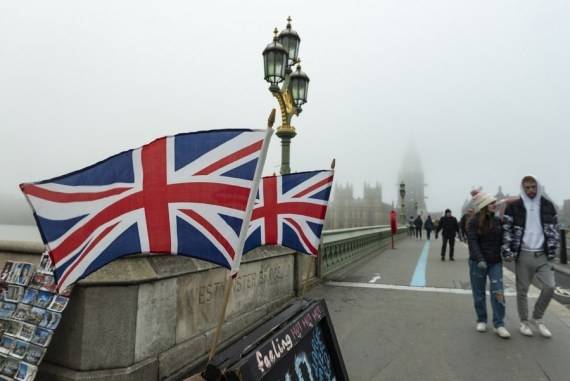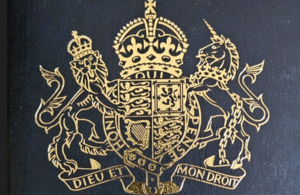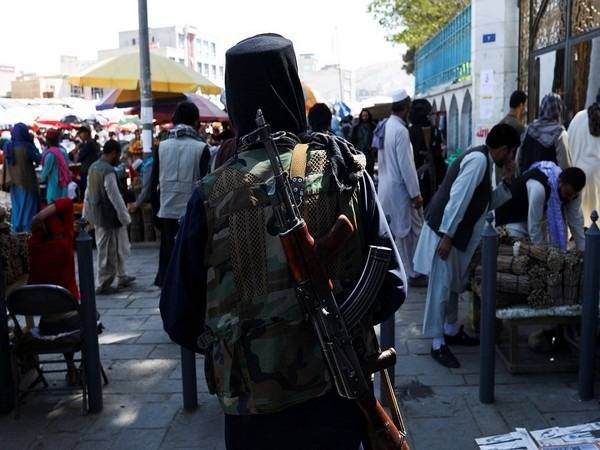The UK economy increased by 1% in the fourth quarter despite the emergence of the omicron Covid-19 variant, matching its expansion in the third quarter, the Office for National Statistics revealed in a statement, reports Asian Lite News
United Kingdom’s economy rebounded by a record 7.5% last year on easing COVID-19 curbs, staging a partial recovery from a pandemic-driven historic collapse, official data showed.
Gross domestic product (GDP) had tumbled by 9.4% in 2020 due to the initial impact of the pandemic and public health restrictions, the Office for National Statistics (ONS) added in a statement.
The UK economy increased by 1% in the fourth quarter despite the emergence of the omicron COVID-19 variant, matching its expansion in the third quarter, the ONS also revealed in a statement.
GDP, however, dipped 0.2% in December on fallout from the rapid spread of omicron.
“GDP fell back slightly in December as the Omicron wave hit, with retail and hospitality seeing the biggest impacts,” ONS director of economic statistics Darren Morgan said.
“However, these were partially offset by increases in the Test and Trace service and vaccination programs.”
Activity held at its pre-pandemic level in February due to increased health sector activity.
“Despite December’s setback, GDP grew robustly across the fourth quarter as a whole with the NHS (National Health Service), couriers and employment agencies all helping to support the economy,” Morgan added.
“Overall, GDP in December was in line with its level in February 2020, before C-19 struck, while in the fourth quarter as a whole, it was slightly below that of quarter four in 2019.”
British finance minister Rishi Sunak welcomed news of the country’s partial recovery from the emergency health crisis.
“The economy has been remarkably resilient,” he said in a statement, noting it was boosted by the government’s vast stimulus measures.
However, assessing the extent to which the UK economy has recovered from the hit of the pandemic is complicated by differences in which the ONS calculates monthly and quarterly data. On the monthly figure, GDP in December was in line with its pre-pandemic level in February 2020.
The ONS also published its trade data and showed that imports from non-EU countries had surpassed those from EU economies in 2021 for the first time since records began in 1997.
Cornelius Clarke, economist at the financial services Ebury, said that “evidently the end of the Brexit transition period has impacted trading relationships that many UK businesses have with their EU counterparts.”
Annual imports and exports in 2021 increased by 8 per cent and 5 per cent respectively compared with 2020, but both remained lower than 2018 levels.
Samuel Tombs, economist at Pantheon Macroeconomics said that while the coronavirus “can’t be blamed” for the UK’s continued underperformance, “exports continue to stand out as an area of significant weakness.”
Growth in December was dragged down by services, where output fell 0.5 per cent compared with the previous month as consumers spent less in cinemas, bars, and restaurants because of the spread of Omicron.
Retail sales and output in the hospitality sector fell 3.7 per and 9.2 per cent respectively. Output in arts and recreation fell 4.4 per cent.
The fall in those sectors was offset by a 2.4 per cent expansion in the health sector, which the ONS said was largely driven by the NHS test and trace and vaccination programme.
Manufacturing output rose 0.2 per cent, boosted by growth in the pharmaceutical and car sectors. Construction also increased by a solid 2 per cent supported by strong expansion in infrastructure and new housing.
In its latest assessment of the economy, the Bank of England said that it expected the impact of Omicron to “be limited and of short duration,” with GDP recovering in February and March. However, it also warned that growth in 2022 will be dragged down by the largest contraction in household real income in 30 years because of rising inflation, higher taxes, and surging energy costs.
ALSO READ-Johnson discusses GCC trade deal with Mohammed bin Salman














